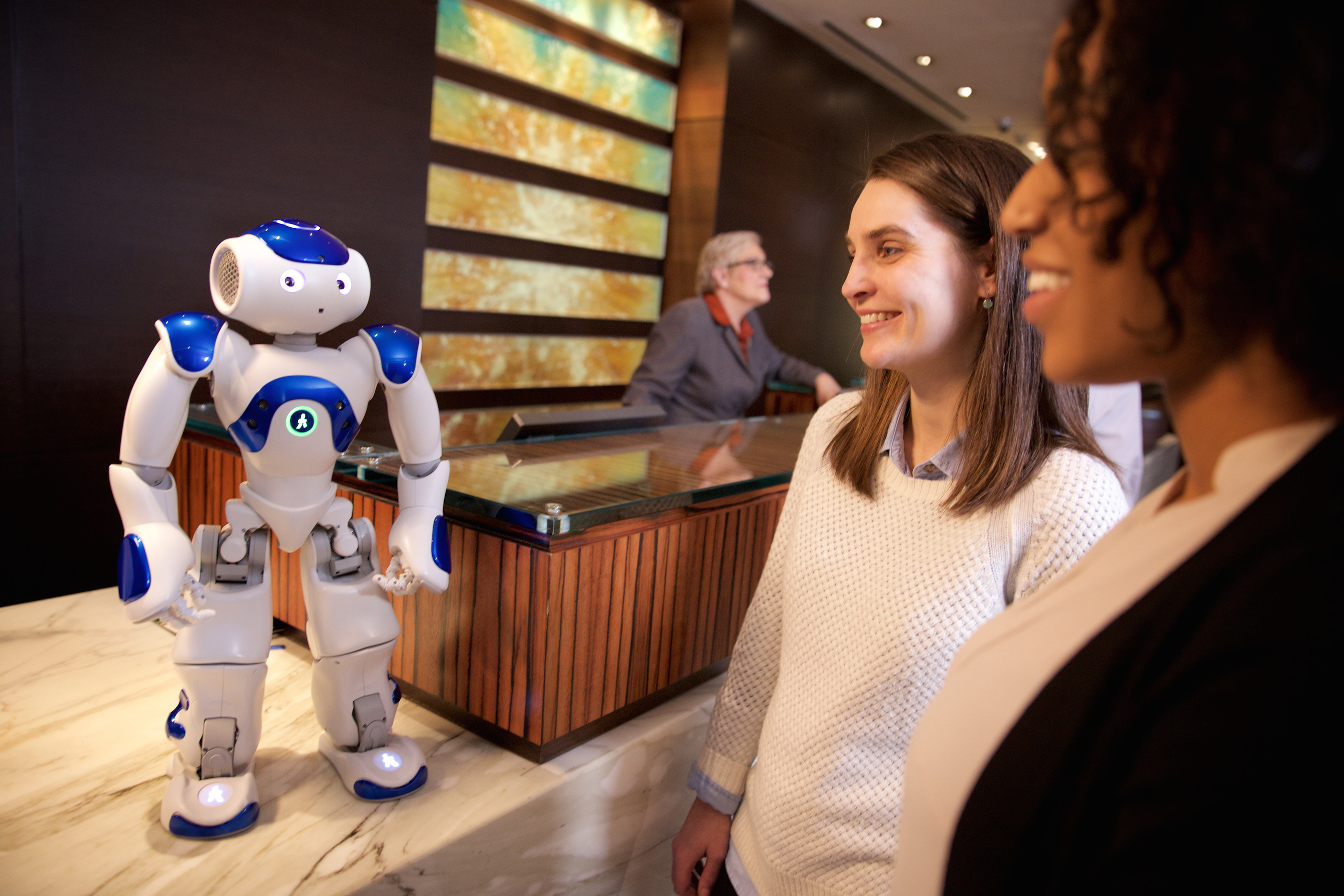Local SEO has grown in importance over the last few years and I’ve seen this no better exemplified than in hotel marketing. Local SEO seems pretty self-explanatory – it’s a branch of SEO that impacts local results, which are often personalised for the consumer. But the implementation of this, like so much in SEO, has become a fine art: a delicate balance between a comprehensive campaign and toeing Google’s guidelines.
As hotels fight against the gargantuan SEO power of online travel agents (OTAs), local map pack results are a key opportunity to get to the top of search engine results pages. And even there, the competition is stiff. Where there used to be seven available spots to rank in local results on page one, now there are only three. And the recent introduction of four ads on top has pushed local results down below the fold.
There are plenty of resources available to guide SEOs and hoteliers through the basics of local SEO. But if everyone’s doing the same thing, how can one hotel come out on top? Here are some advanced tips to get into the map pack.
More than citations: local outreach strategy
As quality links are a key ranking factor, local links are essential for your local SEO strategy. This means finding geographically relevant websites – news, blogs and directories – and building a relationship with them to create natural links. Just as links from sites in your industry build topical relevance, links from local websites build local relevance.
Since links to a nearby business in a local publication are actually useful for their readers or visitors, you’re also more likely to get relevant traffic to your site with these links. And it works both ways, so don’t be afraid to return the favour by linking to some attractions that guests can visit from your hotel. Outgoing links to nearby businesses and websites increase the link between your site and locality for search engines, further boosting your local rankings.
You can also leverage existing relationships in your area. Partnering with neighbouring businesses or sponsoring a local sports team are both great ways to get your brand name out there and create natural opportunities for links.
Creating useful local content
A lot of hotel websites follow similar patterns when it comes to content. They include plenty about their hotels – rooms, restaurants, offers and events – but content about the town or city is often sparse. Some really useful local content that your guests will be genuinely interested in is a great way to break away from the pack.
It’s important to remember that many hotel guests are not there to see the four walls of their room and the hotel bar. While some guests will choose your hotel because it’s convenient to what they’re in town for – a wedding, meeting or event – most of your guests will be tourists during their stays. Push for their bookings not only with sales talk, but by getting them interested in what they can see and do around your hotel. This can include monuments, events, walking tours or shopping streets.
Most hotels shy away from mentioning other bars and restaurants, as they want guests to frequent their bar and restaurant. While your in-house facilities are a great way to upsell to your guests, it’s likely they’ll want to discover the local area, too. Be brave and let them know the best places to go around and about your hotel – your guests will thank you for it.
In-depth local content is also inherently more link-worthy than sales pages and promotional content. This is especially true if you’re mentioning businesses in the area that may share the content with their users or if you’re providing a unique take on your area. If you’re not sure where to start, get some great ideas for unique local content here (or get in touch with some friendly hotel marketing experts).
Promote your individuality
As of 2015, there were 1,494 hotels in London with over 70,000 rooms. There’s no doubt that all of those hotels would like first page rankings for high-volume terms like “hotels in London”, which is searched for over 100,000 times in an average month.
But high search volume and a flooded market make this a highly competitive term. In the local map pack for that search, the average room rate is £375 per night. Essentially, the hotels with more money to invest in marketing are winning the top spots. The next organic hotel ranking is at position 15, halfway down the second page of the search results.
So with only 0.2% of London’s hotels on page one for such a competitive term, how can small and medium hotels fight back? The key is in your hotel’s unique aspects. “Boutique hotels in London” has a not unimpressive monthly search volume of 720 and there are arguably fewer hotels that fit the bill. Or maybe your hotel is near the London Zoo (1,000 searches) or you have a spa (1,600 searches).
Promoting these unique aspects on your website allows you to stand out against your competitors and makes it easier for your ideal guests to find you quickly. With less competition, you’re more likely to rank in search and with more specific search terms, you’re more likely to get the right guests onto your site.
Don’t forget about secondary offerings
Earlier I mentioned promoting nearby restaurants and bars in order to build local relevance for your hotel – and I’m sure many hoteliers gasped at the idea. But I haven’t forgotten about your secondary offerings and neither should you!
If, like most hotels, you have facilities open to the public as well as guests, it’s worth promoting these with their own local campaigns. This means creating individual Google Maps listings for the restaurant, bar and any other facilities, like spa, gym or café. Then, like any other local SEO effort, build citations, links and promote local content for them, too. If done properly, this will result in a broader keyword pool that reaches a wider group of potential customers.
This can be a time-intensive undertaking for hotels with multiple locations, but it can be even more rewarding. Building a customer base for one hotel creates brand advocacy and loyalty – and those customers will likely need a hotel room at some point. If they’re already familiar with your brand, they have more reason to book one of your hotels when they travel.
It can feel like SEO in the hotel space is an uphill struggle, with OTAs dominating the top organic search positions. But what OTAs lack are fixed addresses – so hotels are only up against each other in local search results. To get ahead, get focused on an advanced local SEO strategy – it’s now more essential than ever before.


